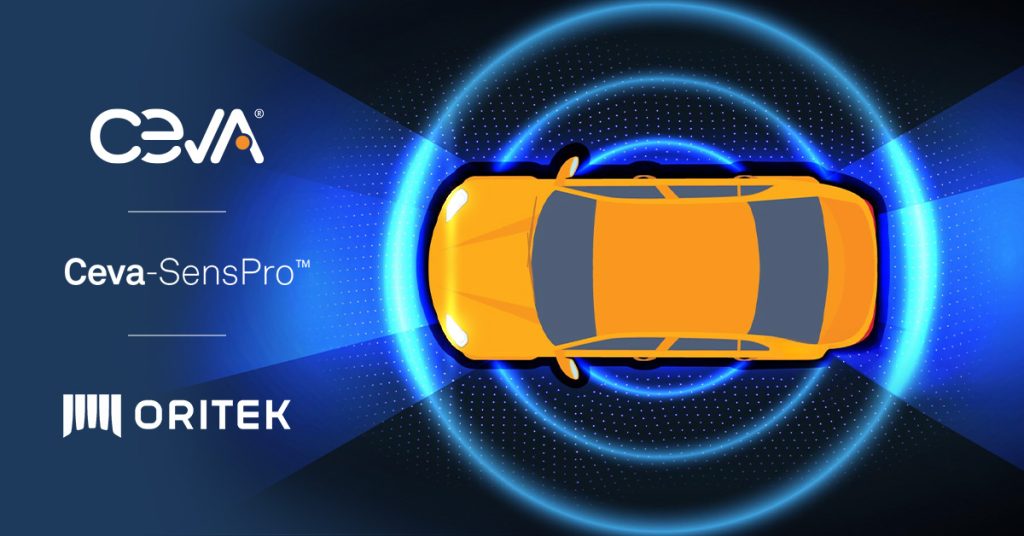- Solutions
- Products
- Resources
- Company
 Investor Relations
Investor RelationsFinancial Information
- Careers
Ceva Press Releases
Latest Company Announcements





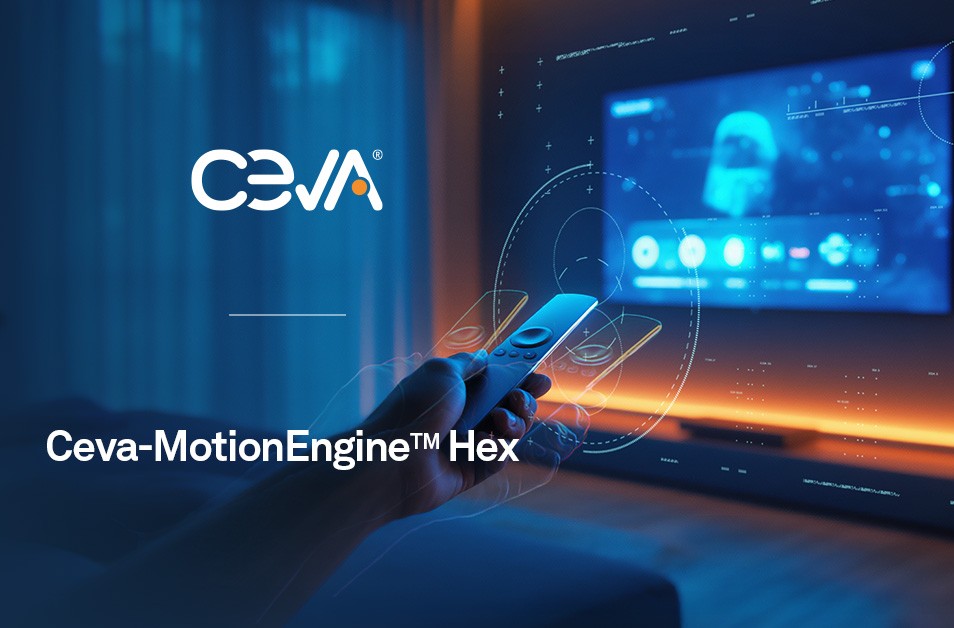


Ceva, Inc. To Participate at Upcoming Investor Events
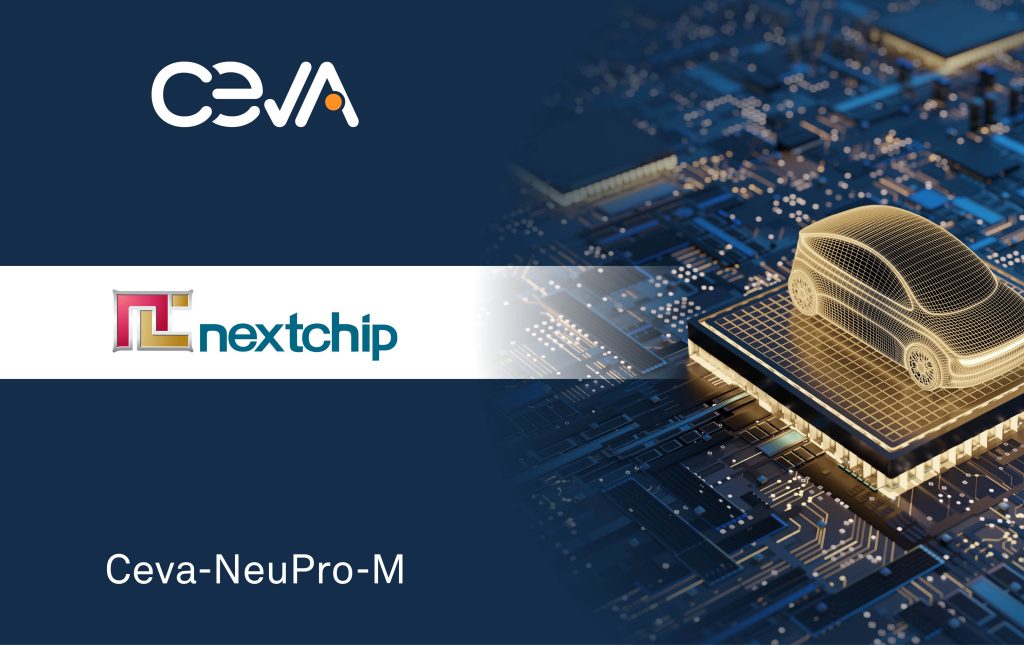
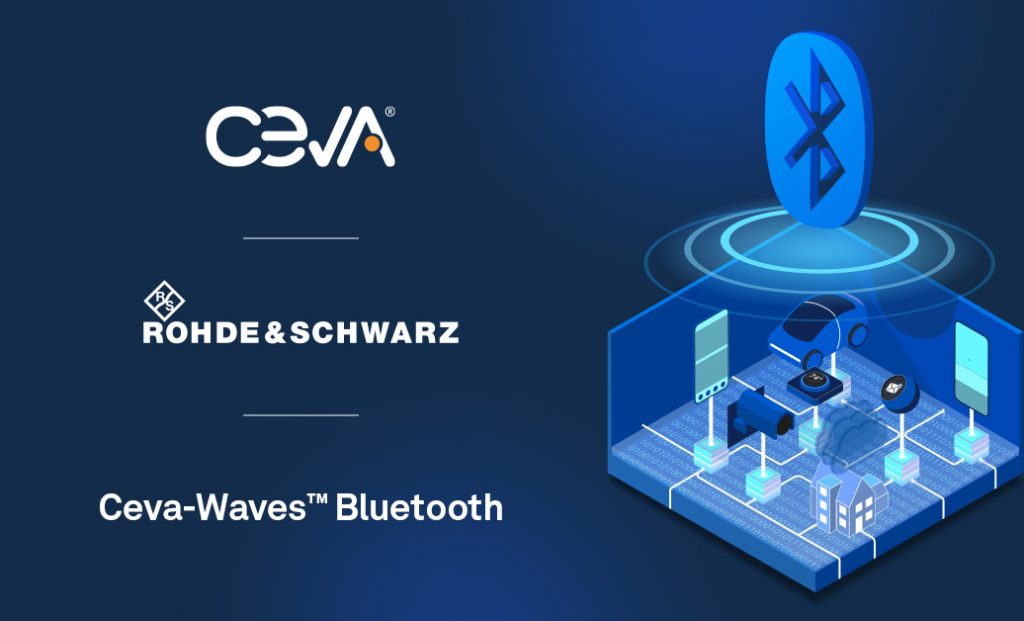

Ceva and Sharp Collaborate on “Beyond 5G” IoT Terminals


Ceva, Inc. Announces Fourth Quarter and Full Year 2024 Financial Results


Ceva, Inc. Appoints Amir Faintuch to its Board of Directors


Ceva Embedded AI NPUs Gain Traction in AIoT and MCU Markets
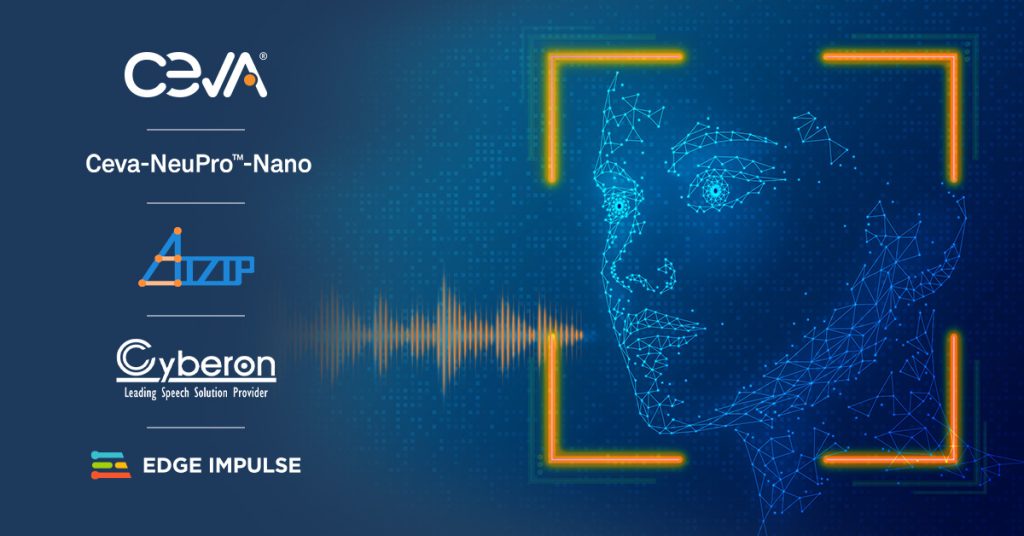
Ceva Expands Embedded AI NPU Ecosystem with New Partnerships
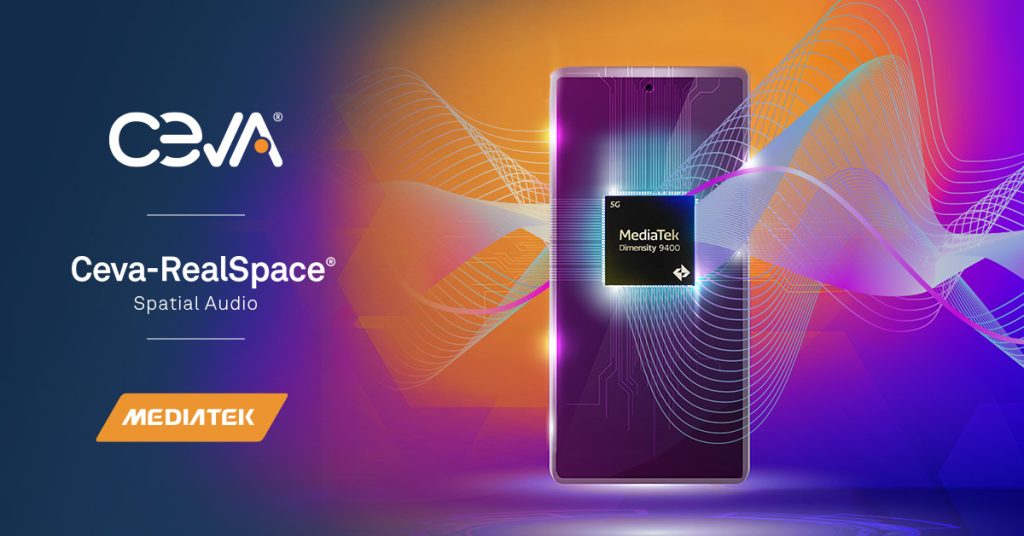

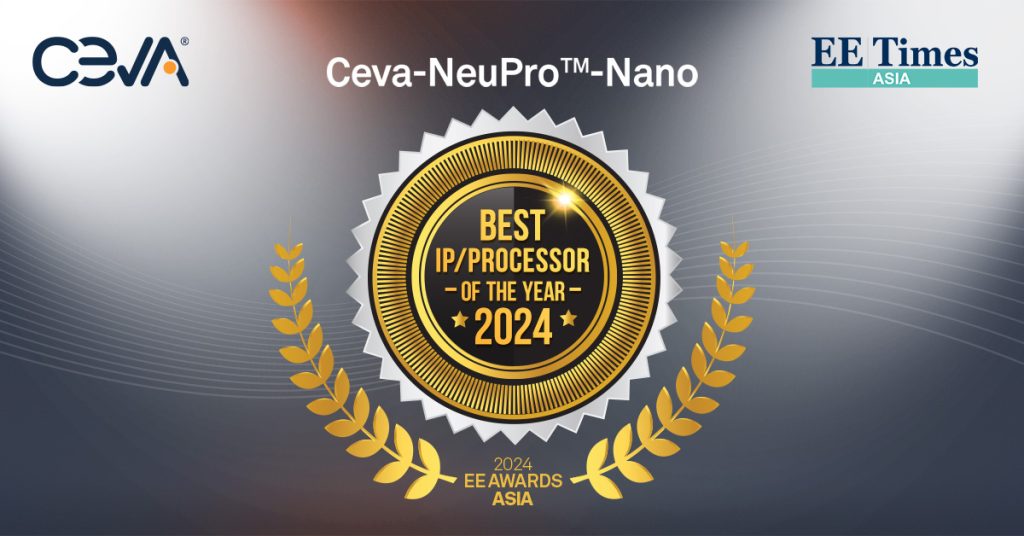

Ceva Inc. to Join Upcoming Investor Events

Ceva Expands Share Repurchase Program

Ceva, Inc. Announces Third Quarter 2024 Financial Results

PiMCHIP Deploys Ceva Sensor Hub DSP in New Edge AI SoC

Ceva and Edge Impulse Team Up to Accelerate Edge AI Dev


Ceva, Inc. Announces Second Quarter 2024 Financial Results

Ceva Bluetooth and 802.15.4 IPs Power Wireless IoT MCUs

STMicro Uses Ceva Cellular IoT Platform in NB-IoT Module


Ceva Joins Arm to Accelerate 5G SoC Dev for Infra & Satellites

Ceva Launches Low Power UWB IP for Accurate IoT Ranging

Ceva Reports Q4 and Full Year 2023 Financial Results

SKAIChips Adopts Ceva Bluetooth for Shelf Labels





Ceva and boAt Partner to Enhance Wireless Audio Experience


Ceva, Inc. Participates at Investor Events

Ceva, Inc. Announces Expansion of Existing Share Repurchase Program

CEVA, Inc. Announces Third Quarter 2023 Financial Results


CEVA, Inc. to Host Investor Day on December 6, 2023

CEVA, Inc. Appoints Iri Trashanski as Chief Strategy Officer

Cadence to Acquire Intrinsix Corporation from CEVA



CEVA, Inc. Announces Second Quarter 2023 Financial Results

Ceva Boosts GenAI with Enhanced NeuPro-M NPU IP Family



CEVA Wi-Fi 6 IP Powers ESWIN ECR6600 Smart Connectivity IC



Ceva Reports Q4 and Full Year 2022 Financial Results



CEVA, Inc. to Present at the 25th Annual Needham Growth Conference

CEVA, Inc. Names Gweltaz Toquet as Chief Commercial Officer

Novatek Uses Ceva DSP in Multi-Sensor IP Camera SoC

CEVA Joins Intel Pathfinder for RISC-V Program


CEVA, Inc. Announces CEO Transition Plan

CEVA, Inc. Announces Third Quarter 2022 Financial Results


CEVA, Inc. Announces Second Quarter 2022 Financial Results

CEVA Celebrates 15 Billionth CEVA-powered Chip Shipped






CEVA, Inc. to Participate in the 34th Annual ROTH Conference

CEVA, Inc. Announces Fourth Quarter 2021 Financial Results






CEVA, Inc. to Present at Upcoming Virtual Investor Conferences

CEVA, Inc. Announces Third Quarter 2021 Financial Results



CEVA, Inc. Announces Second Quarter 2021 Financial Results




Nations’ Latest BLE 5 IC Powered By CEVA Bluetooth® Low Energy IP


CEVA, Inc. Announces Fourth Quarter and Year End 2020 Financial Results



CEVA and DARPA Establish Partnership for Technology Innovation

Retune DSP’s Wake Word Engine Now Available for CEVA Audio/Voice DSPs


Ceva DSP to Power Renesas’ Next-Gen Automotive SoC

CEVA, Inc. to Present at Upcoming Virtual Investor Conferences

CEVA, Inc. Announces Third Quarter 2020 Financial Results







CEVA, Inc. Announces Second Quarter 2020 Financial Results



Picocom License CEVA DSP for 5G New Radio Infrastructure SoC


Bragi and CEVA Collaborate to Redefine Hearable Devices


CEVA Unveils World’s Most Powerful DSP Architecture


CEVA, Inc. Announces Fourth Quarter and Year End 2019 Financial Results

CEVA, Inc. to Present at Upcoming Investor Conferences





CEVA, Inc. Announces Third Quarter 2019 Financial Results


CEVA Appoints Bernadette Andrietti to its Board of Directors



CEVA, Inc. to Present at Upcoming Investor Conferences

CEVA, Inc. Announces Second Quarter 2019 Financial Results










Nurlink Launches NB-IoT and GNSS SoC Powered by CEVA-Dragonfly NB2 IP

Autotalks and CEVA Collaborate on World’s First Global V2X Solution

HILLCREST LABS AND LG RENEW LICENSE FOR SMART TV TECHNOLOGY

CEVA, Inc. Announces Fourth Quarter and Year End 2018 Financial Results

CEVA Locates More Success with Bluetooth® 5.1 IP

CEVA Opens New Research and Development Center in Bristol, U.K.




Bestechnic Picks Ceva Bluetooth 5 IP for Audio Platforms

CEVA, Inc. to Host First Investor and Analyst Day







CEVA, Inc. Announces Third Quarter 2018 Financial Results


SigmaStar Uses Ceva Vision AI Platform in Smart Camera SoC

CEVA Adds ONNX Support to CDNN Neural Network Compiler


CEVA, Inc. to Present at Upcoming Investor Conferences

CEVA, Inc. Announces Second Quarter 2018 Financial Results



CEVA First to Deliver Bluetooth® 5 Dual Mode IP

CEVA and Nokia Collaborate for 4.9G and 5G Technologies



Ceragon License CEVA DSPs for Full 5G Wireless Backhaul

CEVA Extends its IP Platforms for Bluetooth and Wi-Fi with RISC-V



CEVA Announces Industry’s First 802.11ax Wi-Fi IPs




CEVA, Inc. to Present at Upcoming Investor Conferences

CEVA, Inc. Announces Third Quarter 2017 Financial Results




CEVA and LG Electronics Partner for Smart 3D Camera Solution

CEVA Named on the FORTUNE 2017 “100 Fastest-Growing Companies®” List

Nextchip License CEVA Imaging and Vision Platform for ADAS Vision System

CEVA, Inc. Announces Second Quarter 2017 Financial Results
















SRT Group License CEVA Signal Processing IP

CEVA Leads the Bluetooth® 5 IP Wave



CEVA, Inc. Announces Third Quarter 2016 Financial Results


Espressif Licenses and Deploys CEVA Bluetooth in ESP32 IoT Chip





CEVA, Inc. to Present at Upcoming Financial Conferences

CEVA, Inc. Announces Second Quarter 2016 Financial Results






ITRI Selects CEVA-XC DSP for 4G Small Cell Base Stations


LG Electronics Selects CEVA Imaging and Vision DSP for Mobile Devices


CEVA, Inc. Announces Fourth Quarter and 2015 Financial Results






CEVA, Inc. to Present at Upcoming Conferences November 4, 2015

CEVA, Inc. Announces Third Quarter 2015 Financial Results








CEVA, Inc. to Present at Upcoming Conferences August 6, 2015







CEVA, Inc. Announces Third Quarter 2014 Financial Results








RivieraWaves Announces its Wi-Fi Partnership with Celeno



CEVA Extends SATA/SAS Portfolio With 12Gbps SAS-3 IP




DSP Group License CEVA Audio DSP for HDClear Voice Enhancement Solution




SatixFy licenses CEVA-XC DSP for Broadband Satellite Applications













Xincomm Selects CEVA DSP Core for LTE Baseband Chipsets





CEVA, Inc. to be Added to Standard and Poor’s SmallCap 600 Index

Express Logic Announces ThreadX RTOS for CEVA-TeakLite III DSP Core

Ceva’s 1GHz DSP Core Boosts Comms and Multimedia SoCs



RivieraWaves to address IP and wireless market

CEVA Releases SATA3.0 IP for 6Gbps SSD Applications


CEVA DSP Powers Samsung’s First Generation LTE Modem

Sequans Selects CEVA DSP Core for LTE / WiMAX Chipsets




CEVA, Inc. to Exhibit and Participate at 4G World 2009







CEVA, Inc. Announces Stock Repurchase Program

CEVA, Inc. Added to Russell 2000 Index

CEVA Extends Worldwide Leadership in DSP Licensing



MediaTek Licenses CEVA-X DSP Core and Subsystem from CEVA

Spreadtrum Ships Thirty Millionth CEVA-powered Baseband Chipset




















CEVA to Present at Needham’s Growth Conference



CEVA To Present At The ION GNSS 2004 Conference


About The Industrial Technology Research Institute


Samsung Licenses CEVA’s Newest Generation CEVA-X DSP Core


CEVA to Announce Q1 Results April 20

STEPMIND Licenses CEVA-Palm DSP Core for Cellular Handsets




CEVA, Inc. Fourth Quarter 2003 Earnings Release And Conference Call


Broadcom Utilizes CEVA DSP Core To Power Edge Cellular Solution

ParthusCeva Changes Name to CEVA, Inc.

ParthusCeva, Inc. to Change Name to CEVA, Inc.









Ceva and Parthus Complete Merger and Launch Operations




Parthus Technologies plc Annual General Meeting 2002



Parthus Technologies And Wipro Enter Strategic Partnership



Parthus Technologies to Acquire Chicory Systems



Parthus Expands Executive Team with Key Appointments


Parthus Unveils Bluetooth™ Demos Including MP3 File Sharing


Parthus MediaStream DSP Selected by NVIDIA

Parthus appoints Chief Operating Officer Kevin Fielding to Board



Parthus Technologies plc

Parthus Technologies considers follow-on offering



Parthus founder named Irish Technology Entrepreneur of the year






Goldman Sachs takes shareholding in Parthus (formerly SSL)

Parthus (formerly SSL) To Provide 65 Jobs in New Belfast IC Design Centre
Get in touch
Reach out to learn how can Ceva help drive your next Smart Edge design



